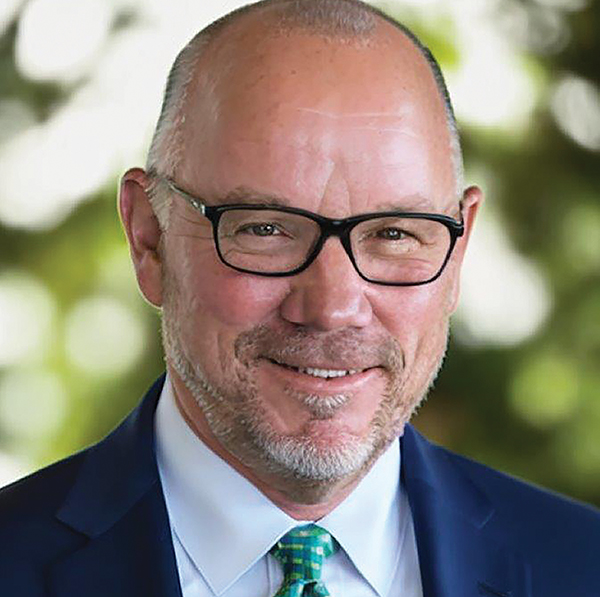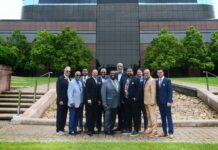
In the last few years, as workers have been forced to navigate frequently changing work schedules, demands and habits, two of the biggest demands for solutions came in the form of childcare and elder care.
And, with a population that’s aging every day, Todd Houghton knows that demand isn’t going away. It is, in fact, increasing quickly.
Houghton, president of Homewatch CareGivers, a division of Authority Brands that provides in-home care and advice on providing care for, among others, aging parents, knows that some 10,000 people are turning age 65 every day, and some 90 percent of them want to age at home.
“The whole caregiving industry is rapidly changing, evolving, becoming a more, relatable partner of the whole health care continuum,” said Houghton, who was appointed Homewatch president in December 2022. “So, we have to continue to evolve and understand how we’re going to meet such demand. There’s going to be a supply issue.
“We need about two million more caregivers in the next five years, across the health care spectrum,” he added. “So, what is happening in the caregiving world is really figuring out how do we bring technology in to aid in the delivery of care?”
Houghton, who earned a bachelor’s degree in business and economics from Illinois State University, talked about Homewatch CareGivers., his career and a variety of other issues during an appearance on a recent episode of “CEO Thought Leadership Series on LinkedIn Live,” the discussion series hosted by the National Association for Business Resources.
Produced in conjunction with the Best and Brightest Companies To Work For and Corp! Magazine, the series is hosted by NABR CEO Jennifer Kluge and features business leaders from around the country.
Jennifer Kluge: With that demand and the shortage of caregivers, what is your recruitment and talent retention strategy? How are you navigating that?
Todd Houghton: It’s a challenge. It’s critical to have a very solid plan in place. We’re very unique in the fact that we have a workforce solutions team, and part of their role and responsibility is to focus on all of that recruitment, retention aspect, help build an appropriate culture within the office setting. And really, that helps drive those results.
We’ve developed our recruitment retention playbook for which in 2024, we were recognized across all franchise organizations with the first-place award for that playbook. We also have built a program called The Making of a Caregiver … that program really helps our officers out there across the, the United States.
Kluge: I would imagine that training’s pretty intense. And when you bring someone on, they go through the training, and then you match them up with the loved one.
Houghton: The person who’s going to receive care is opening their home and allowing a complete stranger to come in and provide some intimate care that they might need. And so, trust is critical.
So, we always elevate that first and say, ‘we need to find people that you can trust.’ Our academy has close to 400 different classes available through a learning management system that allows our franchise owners to train people to deliver the appropriate care.
That can range from what we call active care … that’s really just relationship building, keeping somebody connected and engaged, fighting off loneliness and isolation all the way through nursing care. And nursing care can be focused on infusions or wound care. But every step of the way, there’s training modules to provide the most up-to-date knowledge and resources to clinicians and people that we employ.
Kluge: What are the keys to success in this model?
Houghton: The keys to franchise success … is when the franchisees follow that system. You have those opportunities where they could do better and following the system. So, 45 years of delivering top-quality care in the home speaks volumes about our brand and what our franchisees do every day. But there is opportunity out there sometimes, and we have to remind them why they’re bought into a franchise.
Kluge: I’m sure there have been in your career some monumental moments, some really big lessons learned.
Houghton: I was very fortunate to get into business at a very young age of 14. And so really a monumental experience early on is when I own a business. And quite frankly, it was not successful. But there were so many learnings from that and takeaways and what I had to do differently, both as a business operator and as a leader.
Fast forward from that. That’s really made me the person I am. And I think from the leadership perspective in the home care space is really understanding the critical need, to be a partner with all health care providers, and when you are in that role, you really have to understand how to be resilient, and be an innovator and help people fulfill their, their wishes and their dreams.
Kluge: Give us the good, the bad and the ugly. For entrepreneurs and future entrepreneurs, what are your findings related to this whole space of entrepreneurship?
Houghton: That entrepreneurship is exciting, right? I mean, you get to be in business for yourself, hopefully, you know fulfilling your dreams and your passion and all of that. But with that, I will say, not everybody is an entrepreneur, right? And that’s where you have to really evaluate yourself. There are so many different opportunities out there now to take assessments of yourself and really understand the type of person that you are. I always say follow those because they’ll identify if you are that entrepreneur.
Kluge: Earlier you mentioned that there’s new technology coming out. You have this shortage of qualified caregivers. What are some of the new innovations in your industry and anything interesting that’s developing in the home health care space?
Houghton: There’s a lot that’s happening. And I think from our brand standpoint, we’ve really been the leader in bringing video technology into the home through smart cameras. We’re seeing it start at the top of the health care ecosystem. A lot of hospitals are turning their hospital rooms into what are called smart rooms.
So smart rooms have the ability for a virtual nurse to come into the room when a nurse can be in there, or a doctor can be connected and be a thousand miles away. But evaluate a patient in the room so you can get better access to specialists and things like that. That is transitioning down to the home now.
You’re starting to see a lot of ambient monitoring going on. So, sensors that go out throughout the house, that can detect fall risks and other things like that, which are huge. There’s also the big drive with AI, and it’s exciting.
Kluge: Let’s talk about future CEOs and future leaders. You have quite an illustrious background of leading not only your business, but your long career being an entrepreneur yourself and mentoring others. For future CEOs, what advice would you give them for a successful career?
Houghton: It’s really about being agile and being a people person. As a CEO, you’re leading many different teams, and you need to understand all those nuances. The workforce is much different today than it was when I started my career. So, you really have to get into the minds of people and be supportive.
You’re the coach, and you want to lead everybody on your team to success. But also, being able to have those tough conversations is critical, too. So don’t always be the person, you have to be the innovator. You have to be the strategic thinker. You have to be out there driving your organization forward.
Kluge: Are there any daily rituals that you do as a leader to keep you sharp?
Houghton: I work out every day, so I’m up at 4:15 a.m., every day. It’s really about a regimen that goes on with that workout, but it really clears the head. And I play music when I’m working out. That’s my big ritual. And a couple cups of coffee at that time
Kluge: Is there a book or speaker that inspired you to be your best self?
Houghton: One of my favorite books right now is “The Wealthy Franchisee.” It’s written by Scott Greenberg, and it just really sets the stage. Scott was a former franchisee of a company, and he sets the stage about following the system and the processes. So that book, every time I read it, it just helps me prepare when I’m going to go speak in front of our franchisees because it sets that stage.






